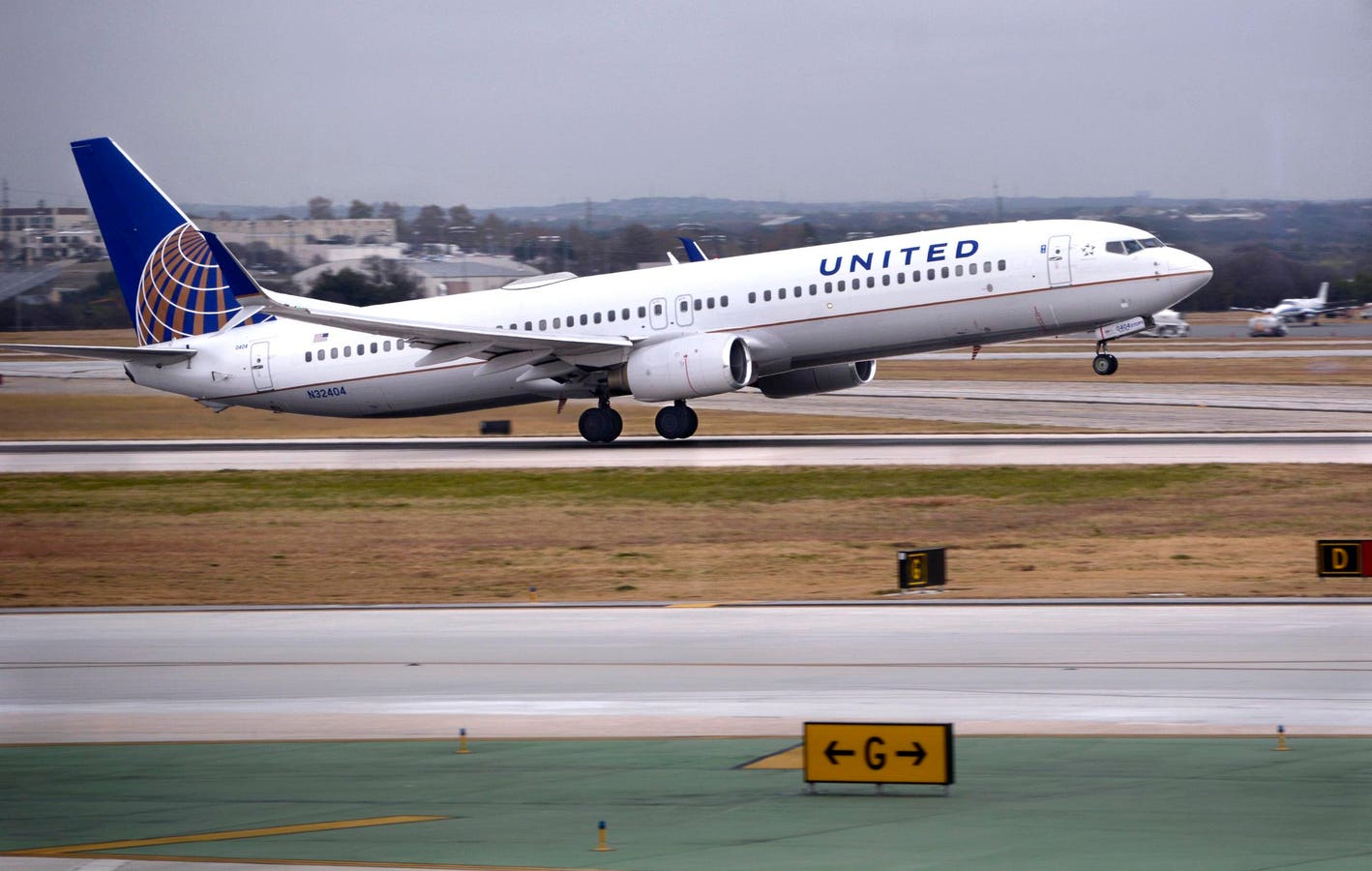Topline
Major airline United provided investors with an unusual second forecast in case of recession, highlighting how economic uncertainty and weakening consumer demand are causing turbulence for the airline industry.
United Airlines says it will turn a profit this year, whether or not there is a recession. (Photo by … More Robert Alexander)
Key Facts
The macro economic environment is “impossible to predict this year with any degree of confidence,” United said in a securities filing Tuesday, explaining why it is providing dueling outlooks.
In a “stable environment scenario,” United expects earnings per share of $11.50 to $13.50 this year, while earnings could be between $7 and $9 per share in a “recessionary environment scenario.”
United said it plans to cut domestic capacity by about 4% this year to align with weaker domestic travel demand and is retiring 21 aircraft earlier than planned.
United shares were up 6% before markets opened Wednesday.
Key Background
Major U.S. airlines are nervous about where the economy is headed. Both Delta Air Lines and Frontier Airlines withdrew their full-year outlooks last week, citing the uncertain macro environment, which United cited as justification for hedging on its guidance benchmark. “A single consensus no longer exists, and therefore the company’s expectation has become bimodal—either the U.S. economy will remain weaker but stable, or the U.S. may enter into a recession,” the Chicago-based carrier said in an investor update late Tuesday. Yet against a backdrop of stormy skies, there seems to be a ray of sunshine in more affluent travelers, as United said demand is holding for premium-cabin bookings and international travel. While United’s first-quarter unit revenue for domestic flights fell 3.9% compared to last year, unit sales from international routes rose more than 5%.
What To Watch For
Whether international travel demand holds with the U.S. dollar weakening rapidly. The greenback has fallen more than 8% since the beginning of the year, according to the DXY, an index that measures the dollar against a basket of foreign currencies. That means American travelers will pay more when they travel outside the country. The dollar is down 9% versus the euro, down 6% against the pound sterling and down 10% versus the Japanese yen. Even in North America, the U.S. dollar is down 3% and 4% against the Canadian dollar and Mexican peso, respectively.
Big Number
$387 million. That was United’s first-quarter profit this year, a huge swing from its $124 million Q1 loss a year earlier.
Tangent
U.S. airline bookings were down nearly 6% in the days immediately following the Trump administration’s Liberation Day tariff announcement, according to an analysis of over 110 million anonymized credit and debit cards by Consumer Edge, a provider of consumer spending data.
Further Reading
Trump’s Tariffs Sent U.S. Airline Bookings Into A Tailspin, New Data Show (Forbes)









